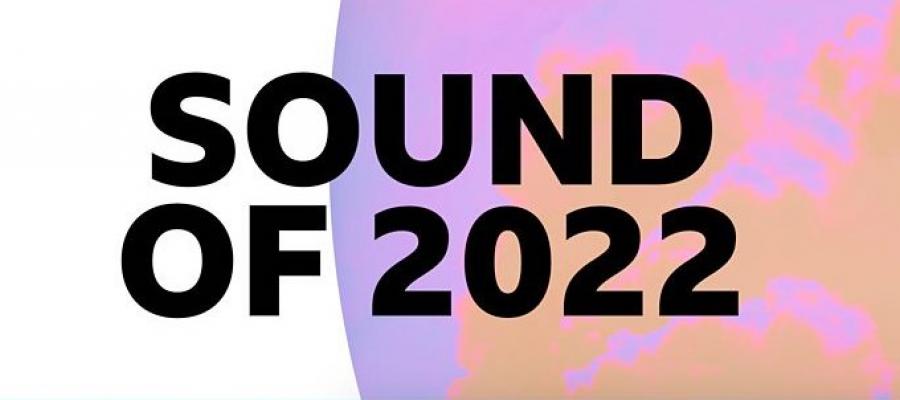Comments Will be Moderated, beginning immediately.
31
Oct 2010
Like every blog, we wage a constant war against spammers. But spammers always seem to be ahead of the game. They are able to leave hundreds of comments at once, even with the safeguards that Typepad has built into its software. The only sure way to block the spammers is to moderate comments --- something we haven't really wanted to do. But it looks like its time to finally give moderation a try. So starting now, we will moderate comments. That means that if you post a comment, it may take awhile to appear. Indeed, if it's off point, or inane, or otherwise inappropriate, it...
Read moreA Big Bang Blog
15
Aug 2016
Our topic this week is the Big Bang – Before and After. It’s another episode in our series "A Philosophical Guide to the Cosmos." Now they say that the Big Bang gave birth to the entire universe. So you might think that the Big Bang must have been one hell of an explosion. But technically speaking, the Big Bang wasn’t actually an explosion at all. It couldn’t have been. An explosion involves a rapid expansion outward from a center. Like when a bomb or a grenade goes off and you get matter and energy being thrown outward in all directions. But despite popular misconceptions, nothing like...
Read moreSeparation of Powers and the Charismatic Presidency
16
Aug 2008
I wrote this entry when our Separation of Powers episode originally aired. I'm moving it up to the top since that episode is about to air again. I welcome further discusssion. KT Later this morning, our episode "Power out of Balance? Exploring the Separation of Powers" will air. This epsiode was recorded back in July [of 2006] on Capitol Hill in a tiny little room in the basement of the building. Though the audience was small, they were quite engaged and engaging. We were there at the invitation of Congresswoman Anna Eshoo. We are most grateful to Congresswoman Eshoo for...
Read moreAshley Madison, accommodation, and silencing
10
Sep 2015
I recently read, with much interest, Jason Stanley’s How Propoganda Works and found it extremely stimulating and thought provoking. It was exciting to see how Stanley sees his work in even the most arcane areas of formal philosophy (philosophy of language and epistemology) as bearing on the most important political issues our society faces—issues of racism and injustice in liberal democracies. Equally as stimulating, has been following up on some of the sources Stanley cites as influencing his thinking on these matters. One of these sources was Rae Langton and...
Read moreWanting to Want for Its Own Sake
15
Apr 2019
Here is one of the most surprising findings that replicates well in social psychology: rewarding a kind of action does not boost motivation to perform that action. In fact, quite the opposite is true. Rewarding an action ultimately tends to decrease people’s motivation to perform that action. Part of the problem seems to be that rewards for behavior provide extrinsic motivation. Extrinsic motivation is motivation you have to do something for a different, further goal. When you’re motivated to watch a movie because it will please your friend, you have extrinsic motivation to watch that...
Read morePuzzle 2: What is an Identity?
16
Apr 2020
Since the Corona crisis rages on and we are already into April, it has come time for a second blog whose purpose is to distract you from the woes of the world. In case you missed it, I promised in my last blog that for the duration of the crisis I would write about philosophical puzzles in order to give you, readers, something to occupy your minds. Last month’s puzzle was about whether people have voluntary control over their beliefs. That issue is moderately big in philosophy of mind and epistemology, and most philosophers who think about it lean toward involuntarism—the idea that it...
Read moreDo Victims Have Obligations?
18
Jan 2018
In this 20-minute podcast, Ashwini Vasanthakumar makes the rather provocative claim that victims have obligations too. While victims may not be responsible for being chosen as the unlucky targets of perpetrators or unfortunate circumstances, Vasanthakumar claims, once they escape their immediate ordeal, victims are in "epistemically privileged positions" in virtue of their experiences. Thus, they play an important role in restoring justice by holding perpetrators to account or informing bystanders and potential victims. For example, a victim of torture may be the only person to know...
Read moreThe Urbanist Delusion
02
Feb 2018
Since Amazon announced the search for its new urban headquarters, cities across the US have jumped at the opportunity, offering everything from tax breaks to municipal planning powers. In a bid to display their uniqueness, cities across the country have all touted the same set of assets—rich culture, beautiful parks, elite institutions of higher education, restaurants, and other identical hallmarks of urbanity. In this polemical critque, author Nikil Saval argues that Amazon has now bankrupted "the ideology of urbanism." So what was this ideology? What really draws people to live in a...
Read moreRepugnant Markets
02
Jun 2018
Our topic this week is what we’re calling repugnant markets. We have in mind potential markets in goods and services the buying and selling of which people tend to find repugnant for one reason or another. We say “potential” markets because society tends not to allow markets in such goods to operate in the open… though there are often black markets in such goods. Are we right to prohibit markets in goods the buying and selling of which some people find repugnant? That’s the kind of question we will be addressing this week, with our guest, Nobel Prize winning economist, Alvin Roth—who may be...
Read moreWatered-down Philosophy for Tech Bros
11
May 2017
Being told that philosophy is still useful—for tech executives who like ingesting pop wisdom in order to eliminate bullshit in their business lives—might make one wish philosophy were just dead instead. But this philosophy-as-bullshit-killer approach to the discipline is currently spreading around Silicon Valley in part due to the influence of a man named Andrew Taggart, who holds a PhD in philosophy. In a recent profile in Quartz, Taggart explains the services he provides as a "practical" philosopher who provides counseling: "Philosophers arrive on the scene at the moment when...
Read moreAre Americans All Nationalists?
27
Sep 2017
Do you think America is the greatest country in the world? Even if you said no, do you implicitly believe in American exceptionalism? Do you think other countries have bigger problems and worse institutions than ours? Do you think that developing countries are trying to "catch up" to the US? Could you never imagine moving to another country? Why? And if so many of us do buy into American exceptionalism, is that just because government propaganda convinced us to? At whose expense does American exceptionalism come at? A recent article in The Guardian by Suzy Hansen...
Read moreBeing Human is Like Being Here
26
May 2014
In my last blog posting, I explained that “human” is a folk-category that doesn’t map clearly and cleanly onto scientific categories like Homo sapiens, and that consequently, science can’t tell us what it means to be human. This time I’m going to consider some folk-conceptions of the human to see if they can offer us anything that’s more useful. One way to get a handle on folk-conceptions of the human is to focus on the phenomenon of dehumanization. When people dehumanize others they exclude them from the category of human, usually with horrifying results. We see...
Read moreDeconstructing the College Admissions Rat Race
03
Sep 2011
Getting into the college or university of your choice – especially if it's highly selective one -- has become more daunting and more stress-inducing than ever before. The odds are stacked against students from the start. Consider Stanford. This year we had just over thirty two thousand applications to fill about sixteen hundred freshmen slots. So we accepted just seven percent of those who applied. Those are astounding numbers. And Stanford's not alone. Harvard admitted seven percent of its applicants, while Yale admitted eight percent and...
Read moreDo Genes Make the Person?
17
Apr 2005
Do genes make the person? If you listen to popular press reports of new genetic discoveries coming out at fairly rapid pace, you certainly might think so. Lung Cancer Gene! Gay Gene! Genius Gene! Little wonder that many people believe -- or should I say fear? -- that genes somehow directly and invariably determine who we are. One has visions of being able to choose the IQ, personality, and physical attributes of one's offspring with the ease and reliability with which one chooses a meal at a good Chinese restaurant. As Stephen Jay Gould once put it, "If we are programmed to be what we are,...
Read moreWhy Teach Prisoners?
10
Feb 2017
Our show this week, “Philosophy Behind Bars” features guest Jennifer Lackey, a professor of philosophy from Northwestern University who also teaches philosophy at the Stateville Correctional Center in Illinois. Jennifer has had a longstanding interest in teaching in prison “in large part because of the transformative impact it can have on the lives of the prisoners, both individually and collectively,” she told Northwestern Now. When I talked to her this week, Jennifer explained how teaching in prison has been an incredibly powerful experience for her too, and how it reignited her love of...
Read moreWhy Do People Argue about Fiction?
09
Sep 2020
Since the Corona crisis is far from over, I’m keeping my promise to attempt to distract you with philosophical puzzles for yet another month. This month, the puzzle has both psychological and philosophical dimensions. Here’s a bit of simplified background evolutionary thought that will point the way to the psychological side of the puzzle. It’s no surprise, from an evolutionary standpoint, that humans and other creatures evolved brains with representational capacities: memory, thought, sense perception, etc. Representational capacities allow creatures to form internal models of...
Read more2022: The Year in Sound
31
Dec 2022
Following up on last year's not-so-new experiment, here's a little behind-the-scenes look into the brief audio montages (produced by yours truly) that we included in this year's episode in lieu of the usual Roving Philosophical Report. We decided relatively earliy on the news hooks for this year's program: the war in Ukraine, controversy at US Supreme Court, and the incredible images from NASA's James Webb telescope. Starting with what felt like the most persistent one headline-wise, I used the very recent speech by President Zelenskyy of Ukraine In Washington, DC as a way in to depicting the...
Read moreWhat is Normal
11
Mar 2010
According to the OED, the usual sense of `normal’ is: 2. a. Constituting or conforming to a type or standard; regular, usual, typical; ordinary, conventional. But do these uses constitute a single sense? It seems that there is nothing very normative about being typical, regular, usual and ordinary; but conforming to a type or standard seems like something one ought to do. We set standards, live up to standards or fail to do so, and the like. The original use of the word `standard', was for battle flags and such, then for weights and measures; then for...
Read moreFreedom and Free Markets
04
Feb 2016
This week our topic is freedom and free markets. We want to explore the extent to which these two things are or perhaps are not mutually dependent on each other. You might think that the answer is obvious, that freedom and free markets necessarily go together hand in glove. Clearly, free markets would not be possible without a great deal individual freedom – particularly the freedom to make contracts. Similarly, to regulate the market, it might seem, is ipso facto to shackle liberty. When you restrict markets you restrict choice....
Read moreClayton's Afterthoughts
28
Oct 2006
posted by Phil Clayton Dear Ken, Thanks for your post this morning about reasons for (and against) belief in God. And thanks to you and John for having me on the show this morning. A few very brief responses to today’s program on "Believing in God" and to your blog: * Did we resolve the issue, either by agreeing that there are rationally compelling reasons for the existence of God, or rationally compelling reasons against God’s existence? No, clearly not. But then again, none of us thought that we would do so. * Did we talk about religious issues – issues of ultimate concern...
Read moreEthical Relativism
10
Mar 2015
"What makes a man go neutral? Lust for gold? Power? Or were you just born with a heart full of neutrality?" -- "Captain Zapp Brannigan," FuturamaThere is a considerable body of philosophical argumentation pro and con ethical relativism. However, I harbor the suspicion that the argumentation is irrelevant to what makes people ethical relativists or anti-relativists. (We lack a really satisfactory term for whatever the denial of relativism is. "Realism" has the wrong connotation for non-philosophers. "What's so 'realistic' about your view? Relativism seems more '...
Read moreThe Wrong Abortion Question
31
Oct 2018
Is abortion the murder of an innocent child, or the exercise of a woman’s right to control her own body? Or maybe we’re focusing on the wrong question. Abortion is a “wedge issue” that divides Americans into a “pro-life” side that believes a fetus is a person with rights, and “pro-choice” side that believes fetus is a clump of cells which is morally insignificant when weighed against the right to bodily autonomy. Having two sides shout at each other obscures other serious obstacles to reproductive rights in the US—obstacles that both sides of the abortion debate should agree about....
Read moreWhy Not Change Your Core Self?
25
Oct 2019
Let’s say you could snap your fingers and all your various tastes and aesthetic preferences would change overnight. You would appreciate different foods, you would like different books, you would prefer different colors and clothing styles and jokes. Would you do it? I’m guessing your answer is a clear ‘no.’ I would say ‘no’ too. But why? Why not switch? The answer might at first seem easy. It would be really inconvenient to gain an entirely new set of preferences. You’ve set your life up around the ones you already have and you’ve made friends who like the same sorts of...
Read morePhilosophy and Shelley's Frankenstein
31
Oct 2017
With its 200th anniversary fast approaching in 2018, it might be time to revisit Mary Shelley's Frankenstein. In this audio clip from ABC, academics in the "Philosopher's Zone" discuss major themes and the predominant philosophies of the novel's day. Drawing from Shelley's Calvinist upbringing and prevalent ideas of the Romantic period, the hosts expand upon one-dimensional analyses of the novel, including analyses of the novel as a story about birth envy or as a cautionary tale against bold, scientific endeavors. Instead, as one participant of the discussion argues, the novel...
Read moreThe Morality of Big Business
14
May 2018
"Big business" for many has largely immoral associations: corrupt, profit-driven at the expense of human wellbeing or the environment, threatening to mom-and-pop shops everywhere. But this wasn't always the case—big businesses used to be viewed positively by the public. Is our current immoral perception of big businesses truly accurate? Are small-businesses really the shining examples or morality and business we take them to be? This article from The Atlantic tackles the question, "How did large firms go from being a symbol of American strength to being the object of...
Read more




















